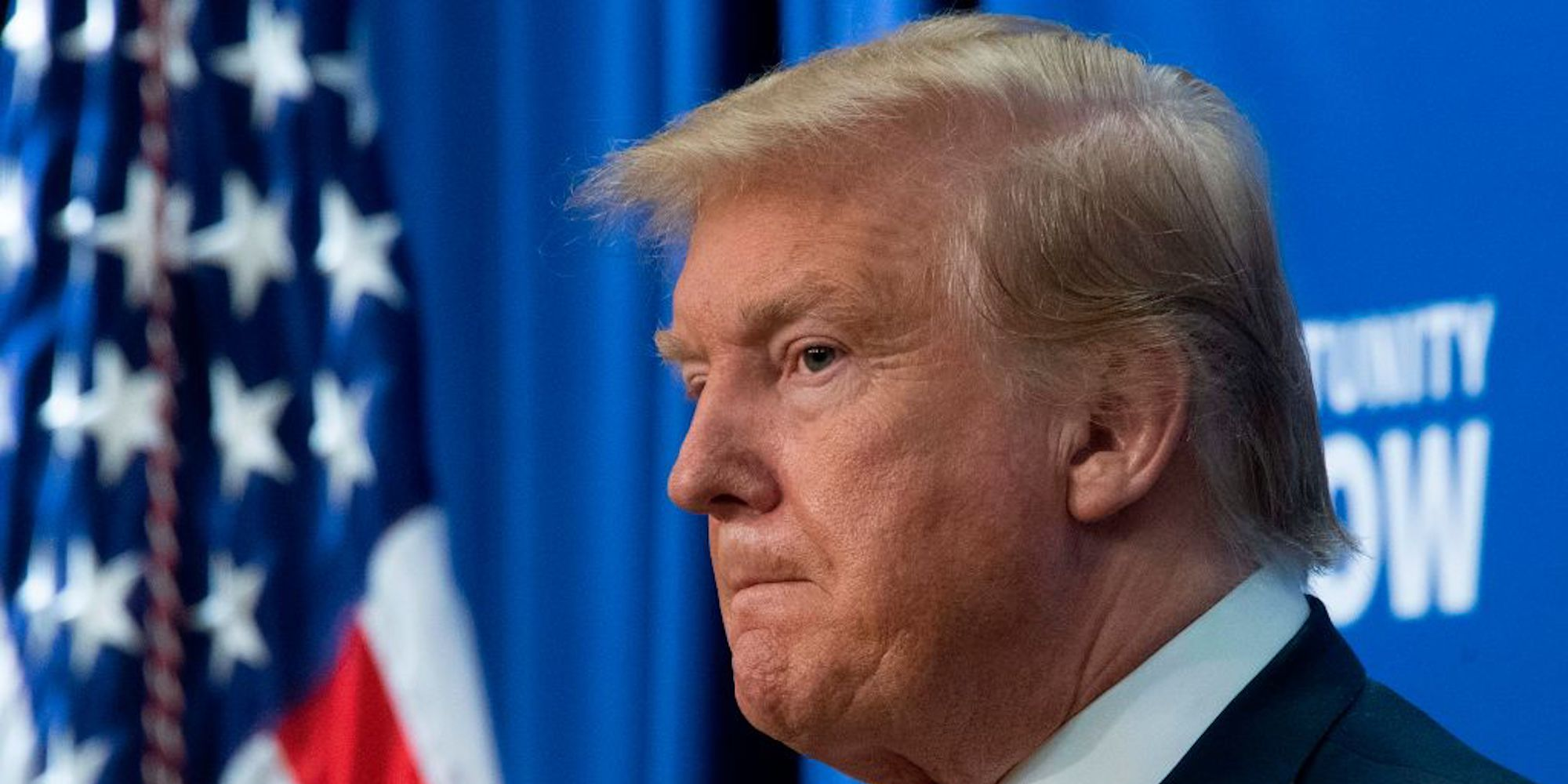- After the special counsel’s report on Russian election interference was submitted to the attorney general, President Donald Trump claimed it gave him “total exoneration.”
- But the attorney general’s summary of the report provides grounds for unease in the White House, quoting the special counsel Robert Mueller as saying he was not exonerating Trump of obstruction of justice in connection to the investigation.
- The full report is expected to detail the president’s actions as he attacked the investigation; Barr is scheduled to submit the redacted report to Congress at 11 a.m. ET on Thursday.
- Visit BusinessInsider.com for more stories.
After the special counsel Robert Mueller submitted his report on Russian election interference to Attorney General William Barr back in March, President Donald Trump was exultant.
The president claimed “complete and total exoneration” in remarks to reporters two days later, saying Mueller’s findings showed “there was no collusion with Russia” and “no obstruction, none whatsoever.”
In the weeks since, the president has continued to argue that the report shows him to be completely innocent, while taking the war to his enemies. He swore revenge against those who initiated the Mueller investigation, whom he has characterized as Democrats with a political vendetta.
Among the president’s aides, though, disquiet is said to have grown as they prepare for the release of what is expected to be a redacted 400-page report.
The reported source of that disquiet: fear that Trump's attempt to claim victory has been so uncompromising that it leaves him dangerously exposed when reality hits.
Citing sources close to the president, The New York Times reported on Sunday that aides were uneasy with the president's claims that the report let him off the hook and would have preferred that he use the term "vindication" instead of "exoneration."
The only public details from the report so far are a few quotes in the four-page summary delivered by Barr, which Democrats have questioned.
But Trump went further even than Barr's conclusions in his claims of victory, which now looks like a strategic blunder.
In his summary of the report, Barr wrote that the investigation "did not establish that members of the Trump Campaign conspired or coordinated with the Russian government in its election interference activities" and "does not conclude the President committed a crime" - conclusions favorable to Trump.
But, crucially, Barr also quoted Mueller as saying the report "does not exonerate him."

This flatly contradicts what the president has claimed of the report.
And though Mueller apparently did not find sufficient evidence to accuse Trump or his aides of crimes relating to collusion, his team's findings on the question of whether the president attempted to obstruct the investigation are far less clear-cut.
According to Barr, Mueller declined to reach a conclusion on whether Trump obstructed justice. Barr said that after consulting with Deputy Attorney General Rod Rosenstein, he concluded there was not sufficient evidence that Trump had committed obstruction.
But this does not mean there is no evidence. Indeed, the report is likely to feature extensive, unflattering evidence of behavior by the president - both in public and behind closed doors - as he targeted Mueller's investigation and attacked the officials who initiated it.
Sources with knowledge of the matter told The Washington Post in an article published Wednesday that Mueller's report would be lightly redacted, offering a detailed look at the president's behavior scrutinized by investigators as possible evidence of obstruction.
Mueller's investigators themselves have indicated the report's findings could undermine the president's narrative. Sources close to the investigation told both The New York Times and The Washington Post that Barr's summary presented Mueller's findings in too positive a light for Trump, particularly on the issue of obstruction.
Noncriminal, but nonetheless damaging, interactions between Trump's team and Russians linked to the Kremlin could also be exposed by the report.
While some analysts think Trump succeeded in cementing his take on the report's findings to core supporters, others believe the president has effectively set himself up for a fall.
The Republican strategist Michael Steele told The Post: "In terms of the public perception, I have a strong feeling that the president's victory lap will be followed by a long string of embarrassing revelations as portions of the full report make their way into the public."
So, though Trump and his aides have portrayed the report as having finally ended the claims of collusion and obstruction that have dogged his presidency, the initial sense of triumph may well be on its way to turning sour.

